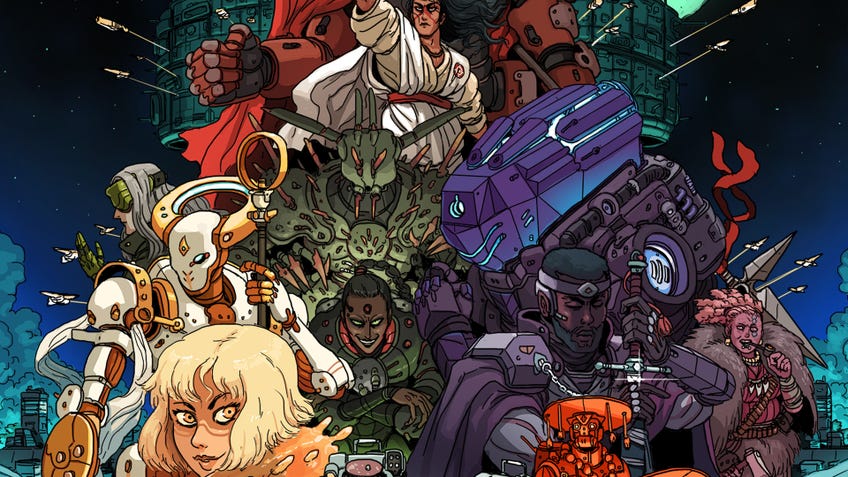Lancer: Inside the cockpit of the mech RPG looking to a positive future for roleplaying - and the universe
Co-creators Miguel Lopez and Tom Parkinson-Morgan on drawing from classic sci-fi and moving away from D&D’s “old racist shit”.
13,000 years from now, in a universe where the death knells of an anthrochauvinistic human empire have shepherded the human race towards a post-scarcity utopia-in-progress, hotshot pilots clash on the fringe of civilisation in mechanised suits. These Lancers are the cavalry, called in to solve the problems that cannot be resolved any other way.
This is the narrative setting of Lancer, a tabletop RPG that sees you playing an elite mecha pilot fighting on the outer-rim of a galactic human empire, Union, that is striving to better itself in a time of seismic changes.
Lancer is the creation of Miguel Lopez and Tom Parkinson-Morgan, conceived out of their desire to create a tabletop game that blended their love of RPGs with their desire to play a sci-fi game with tactical, modular mech combat in a far-flung future setting that avoided the nihilism of grimdark dystopias and the fantasy of a utopian future that was anything other than a work in progress.
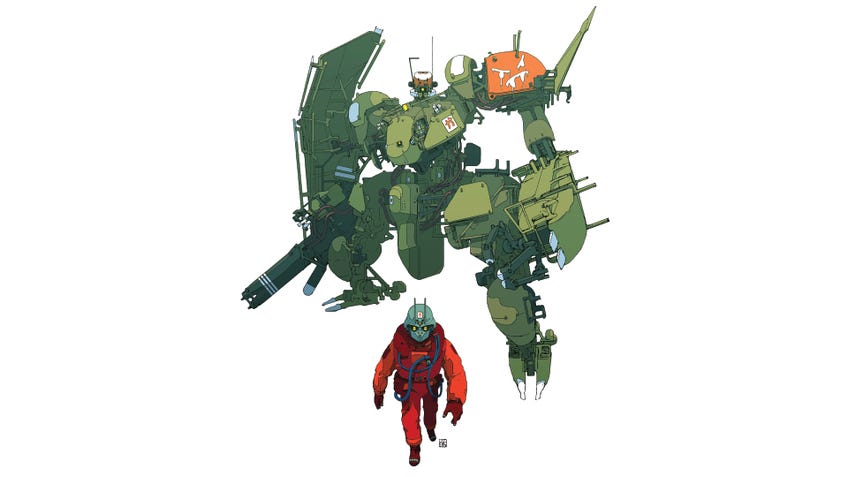
A beta version that the pair released on Google Documents in late 2017 elicited an overwhelming community response, which led to them running a Kickstarter campaign in spring 2019 that included a modest $46,000 stretch goal for a hardback book printing. 10 minutes in they had blown through that. Within an hour it was over $100,000. It finally ended at $432,029 with over 9,000 backers.
I caught up with Tom and Miguel a year-and-a-half after the launch of the Kickstarter, as the physical copies of the core book have started to arrive in backers’ hands, to ask them about the genesis of Lancer and how the RPG tackles the various themes and mechanics that make it so unique.
Why did you decide to make Lancer the way that you did? With so many tabletop RPG hacks, or the market for simpler one-shots, what made you want to take on such a large task?
We both had a very clear vision for the game that we really wanted to execute.
Tom Parkinson-Morgan: The short answer is that I am a horrible goblin man who has strong visions for things and I have to follow them through. We both care a lot about our work and I didn't think doing a hack at the time was something I wanted to do. I have strong thoughts about game design, so I wanted to do something that was going to be a good paradigm in design.
Miguel also thought the same about the narrative. He didn’t want to ape a lot of the science-fiction that was going on at the time. I think we both had a very clear vision for the game that we really wanted to execute.
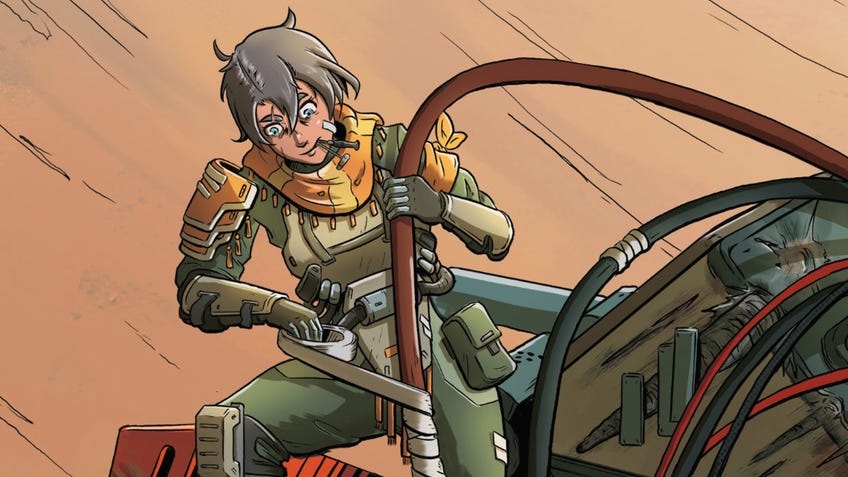
The amount of work involved in actually executing something like this is very difficult. It requires a lot of discipline, not to toot our own horn. There can definitely be a block that a lot of people, myself include, run into when undertaking a project like this.
I think we had some major advantages coming into Lancer because Miguel had been doing an MFA Creative Writing programme which forced him to write a lot under constant criticism, and I had been doing a comic at that point for just about three years, updating it weekly - I kinda had that muscle developed already.
Miguel Lopez: Just to add further colour to the process of taking it from a hobby thing to something professional, the moment other people started paying attention to it was when I realised I had to approach it much like work.

A lot of my early experience writing Lancer was very, very different from my MFA experience. I’ve always grown up writing science-fiction and fantasy. [...] The writing sample that I sent in to apply for my MFA was a science-fiction short story, and then for the three of the MFA I didn’t write science-fiction at all.
Lancer was initially just an exercise in fun and having something you want to write. Around the time we started to get a following was when I realised it was serious.
I tweeted about it in a kind of flippant way, but one of my experiences in my MFA program - which I wouldn’t trade for anything - was handing in what I thought was a very sober science-fiction story about gig work, and getting it laughed out of the class…
Writing Lancer was initially just an exercise in fun and tapping into the easy discipline of having something you want to write. Right around the time we started to get a following for it was right about the time I realised it was serious. People were asking me questions about something in the fiction I’d written, which was a new thing for me.
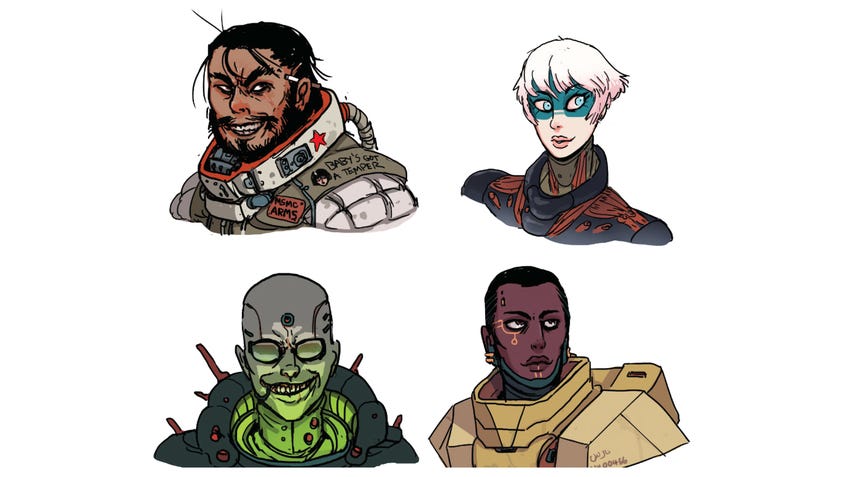
What was your initial core vision for Lancer?
Parkinson-Morgan: We had very clearly defined principles as to what the game should be about. It was very important to us from the get-go that Lancer was not a dystopian sci-fi setting. Instead, we wanted it to be more like classic sci-fi: fundamentally optimistic in its world view. The story takes place in a setting where there was a genuine good actor, someone who was saying, “We’re trying to do the right thing, and it’s complicated, but we really are trying to make it better for everyone.”
We’re both sick of cynical sci-fi.
We’re both sick of cynical sci-fi, neither of us get invested in it. It’s so common nowadays, it’s not productive and it’s not interesting to me any more.
Lopez: It’s the dominant mode, and I want to say that Lancer’s setting has a sort of Gramscian-style pessimism of the intellect, optimism of the will. I don’t think either of us want to write something that’s completely Pollyanna about visions of the present or the future, but we still want to contend with the dominant mode of storytelling.
Something we encounter constantly in the lore and world-building section of the Lancer community Discord is this line of questioning: “Oh no, are these Union guys actually secretly bad? Is there actually something negative here, is there some nefariousness to this setting?”
People sort of approach it like a puzzle box that they’re gonna unlock and find the demon that’s working all the stuff in the middle… it’s funny!
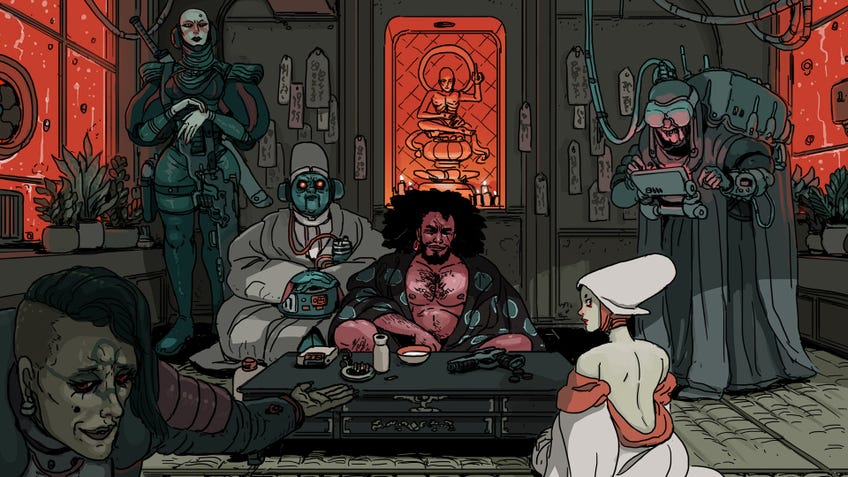
Parkinson-Morgan: It was very important to us to have a setting that had conflict. Most of the stuff that’s going on in the story of the setting and the story of the game is going to take place on the periphery of civilisation, whereas the core of it is generally a pretty good place to live - it’s a post-scarcity society, and the entity that is governing that is complicated but ultimately trying to do the right thing.
Lopez: We want this to be a future where the fight that you’re gonna have is to be a righteous one and it is in defence of something rather than for gain. It’s one of the reasons we got knocked in a couple of reviews by some folks who bemoaned the fact we don’t have a reward system in the game.

The decision to not include a system where you get rewarded a bunch of gems and special items was pretty intentional. Speaking from the narrative side, we wanted to have the players fighting to defend things and not necessary for the material gain.
Lopez: Yeah, that’s a big one.
We wanted to have the players fighting to defend things and not necessary for the material gain.
Parkinson-Morgan: If you’ve read about the No Room for a Wallflower Field Guide coming out soon, there’s a minor exception to that rule - but it’s a notable exception, and it’s there for a reason. There’s no aliens in Lancer, everyone’s a person. We have some weird post-humans, some weird shit going on, but fundamentally neither of us like the idea that often in sci-fi stories there are rubber head people that are used as stand-in for other cultures. Why not just use another culture? Let’s make it interesting, let’s make it complicated. That was pretty important to us too.
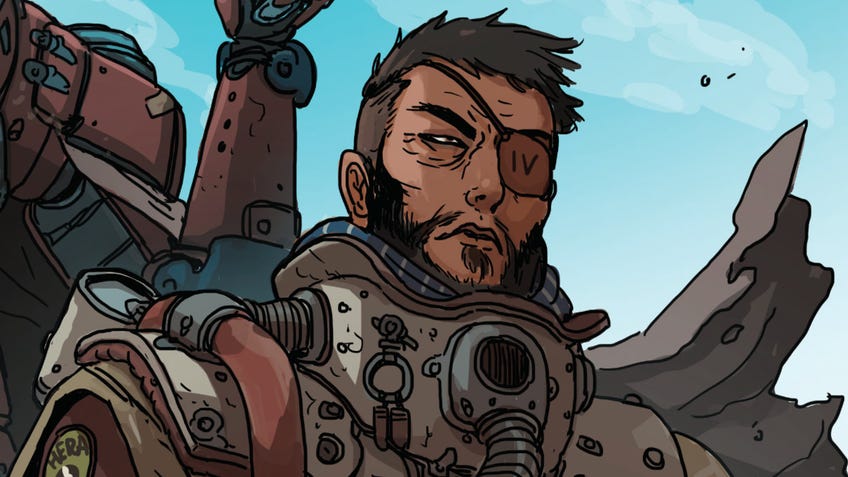
There’s been a lot of writing about the politics of Dungeons & Dragons, especially about how it upholds some conservative values in its lore and mechanics. Are there any things that you looked at in D&D as “these are the touchstones of things that we don’t want to do”?
Parkinson-Morgan: It didn’t come from a sense of actually trying to actively find ideas to avoid. There were just things that I noticed that I didn’t like, and tried to avoid them when I came to writing mechanics. I was thinking about how I don’t like having things tied to your personal abilities a lot of the time 'cos I think it’s reductionist, right? It sort of reduces your character to your physical attributes which is weird and gets into some weird bio-essentialism stuff.
Me and Miguel were in agreement pretty early on that we didn’t want to do any of that crap, 'cos why do it? It’s based on real old racist shit, and also it doesn’t make sense game design-wise. You don’t want to have one optimal narrative affecting choice for a mechanical thing you want to do, so I designed the skill system as “pick the things you want to do, and you get a bonus to doing them”. It’s pretty simple!
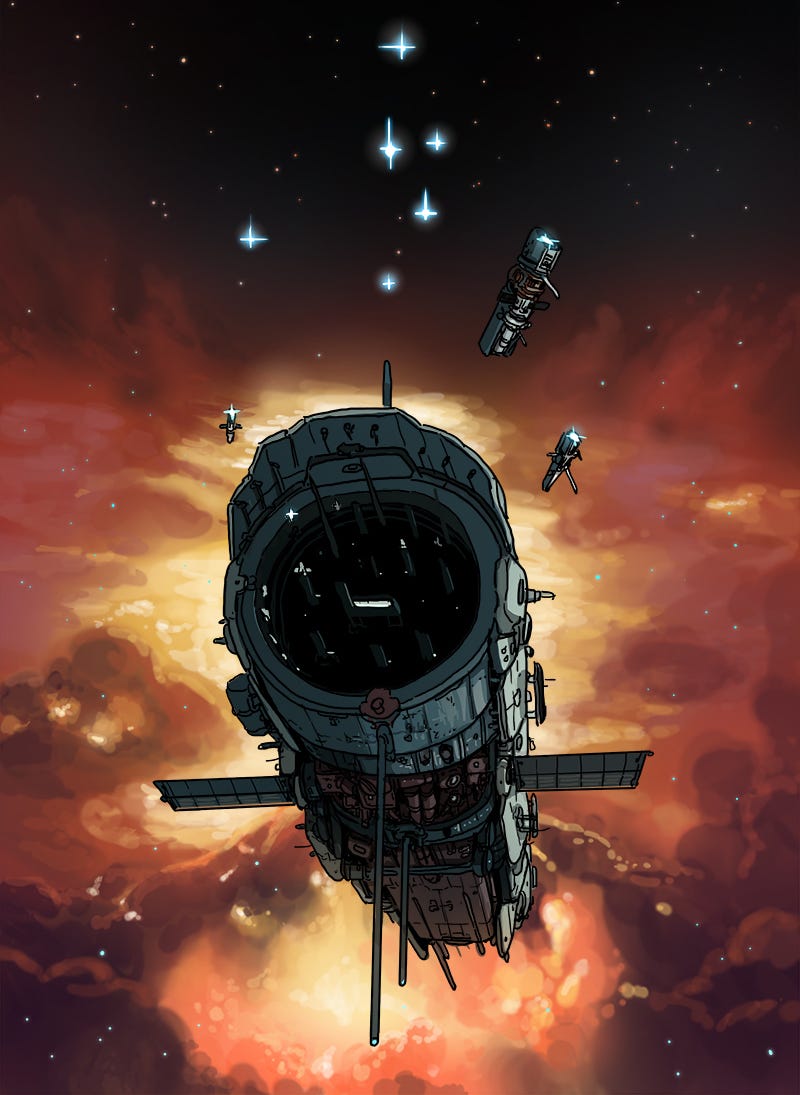
A lot of the systems that made it into the game made it in because I don’t think that, for example, certain systems worked particularly well in games like D&D and I don’t think they’re actually good mechanics to start with. That did tangentially tie into how the game treats certain things like race and stats and stuff.
A lot of systems made it into the game because I don’t think that certain systems worked particularly well in games like D&D.
A lot of traditional roleplaying games and traditional fantasy has a conservative outlook - it’s usually about someone that’s very rich and is plundering the land. You aren’t telling stories about serfs, you’re telling stories about knights who are landed gentry. It’s very parochial in a way. Tolkien is very parochial - it’s very pastoral, it has this weird very sort of pastoral conservative view of English history, and everything after Tolkien has sort of inherited that.
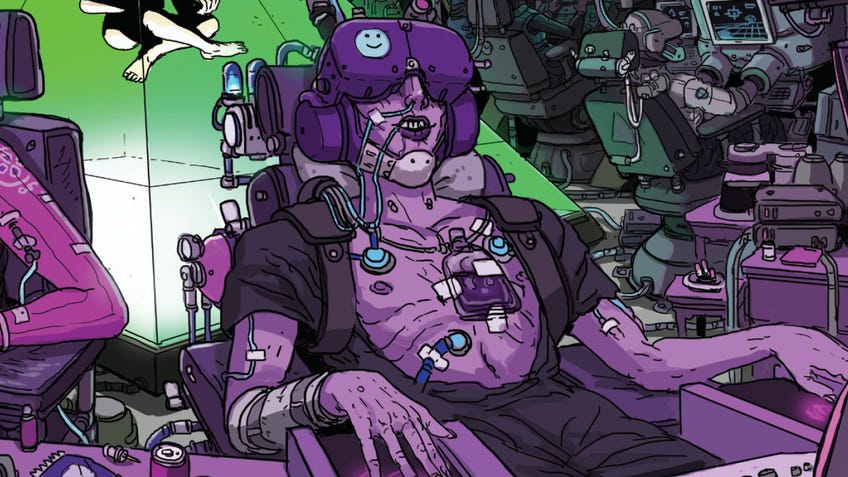
In Lancer you’re still playing knights, but you’re playing knights in the sense you stand for something - and that something could be money. That’s fine, that’s up to you if that’s the game you want to play, but at least I think we made a system that incentivises players to think about these things.
Lopez: Something we realised early on is that ultimately we have no control of what our players do at the table, so we tried to guide as much as we possibly can through the mechanics and the canon of Lancer.
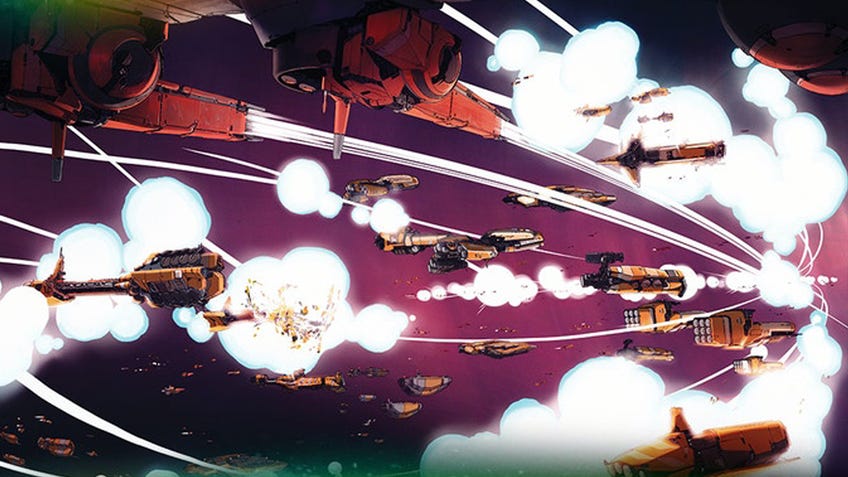
Now that the full physical release is in people’s hands, and after numerous small content packages on your Itch.io page, what’s next for Lancer? You’ve mentioned a sort of Season 2, as well as your first Field Guide, No Room for a Wallflower. What kind of roadmap do you see for the future?
We’re working on making sure our promises meet our capacity because we don’t want to overpromise.
Lopez: We have a loose road map with no public commitments, but we do have a couple of documents that take a stab at what Lancer Season 2 looks like. One of the things we’re working on is making sure our promises meet our capacity because we don’t want to overpromise.
The best thing one could use as a roadmap now is on our Kickstarter - currently we have three upcoming Field Guides. These releases should advance the meta story of Lancer, moving the setting along to a new date.

No Room for a Wallflower is our first big “this is a Lancer story” release. It’s set up as an introductory campaign that’s going to be released in two parts. The first part is the introductory part, and when it ends you can go on and do whatever else you want, or you can play out part two which is the more advanced campaign where your characters will learn more about the Lancer universe and have some core conceits wrinkled a bit, hopefully in a profitable way. Not in the sense of money, but in the sense of how the setting can be investigated.
In addition we’re co-publishing a game called Lancer: Battlegroup with Role, which is an upcoming virtual tabletop and indie game marketplace. That’s slated for a Q1 2021 release, early next year, but I think for Season 2 beyond that we have some stuff in the.. I was gonna say oven?
Parkinson-Morgan: We’ll have more content coming out, but it won’t come out until after all the books from the first Kickstarter are accounted for. We have lots of ideas. In the future Massif Press may end up publishing other games.
Lopez: There’s also other Lancer media too. It’s on the backburner right now though. Our capacity to work on Lancer is only as good as Tom and I.
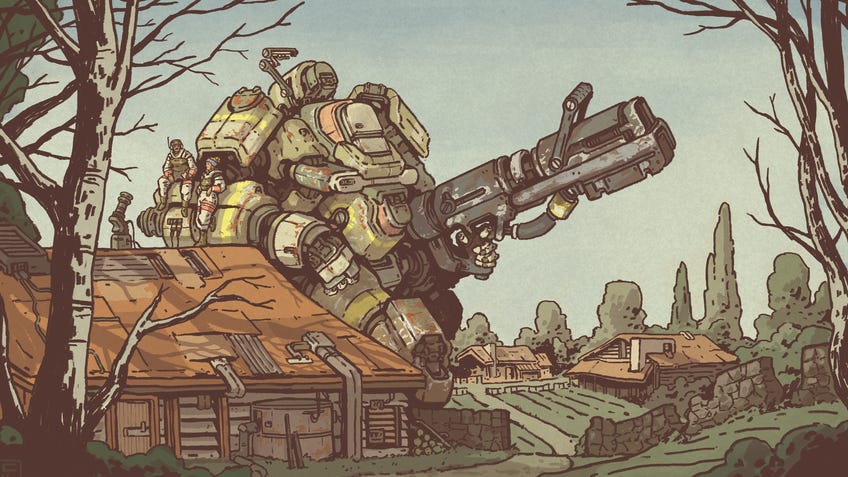
Parkinson-Morgan: It’s mostly me because I work on [web comic] Kill Six Billion Demons full-time. I am drawing 30 to 40 hours a week. Miguel’s writing full-time on Lancer projects. We’re very different in as far as what we’re working on.
Now the core book is done this huge weight has been lifted and we can see the horizon.
Lopez: Rest assured that the next couple of years there will be a steady drip of good Lancer content.
Parkinson-Morgan: It’s great to be in a place now where we’re looking at projects and can say “Oh, we can take this to editing now!”
Trying to publish the core book and getting it printed was a learning experience and required huge effort from both of us to work, and now it’s done this huge weight has been lifted and we can see the horizon.
This interview has been edited for clarity and length.
